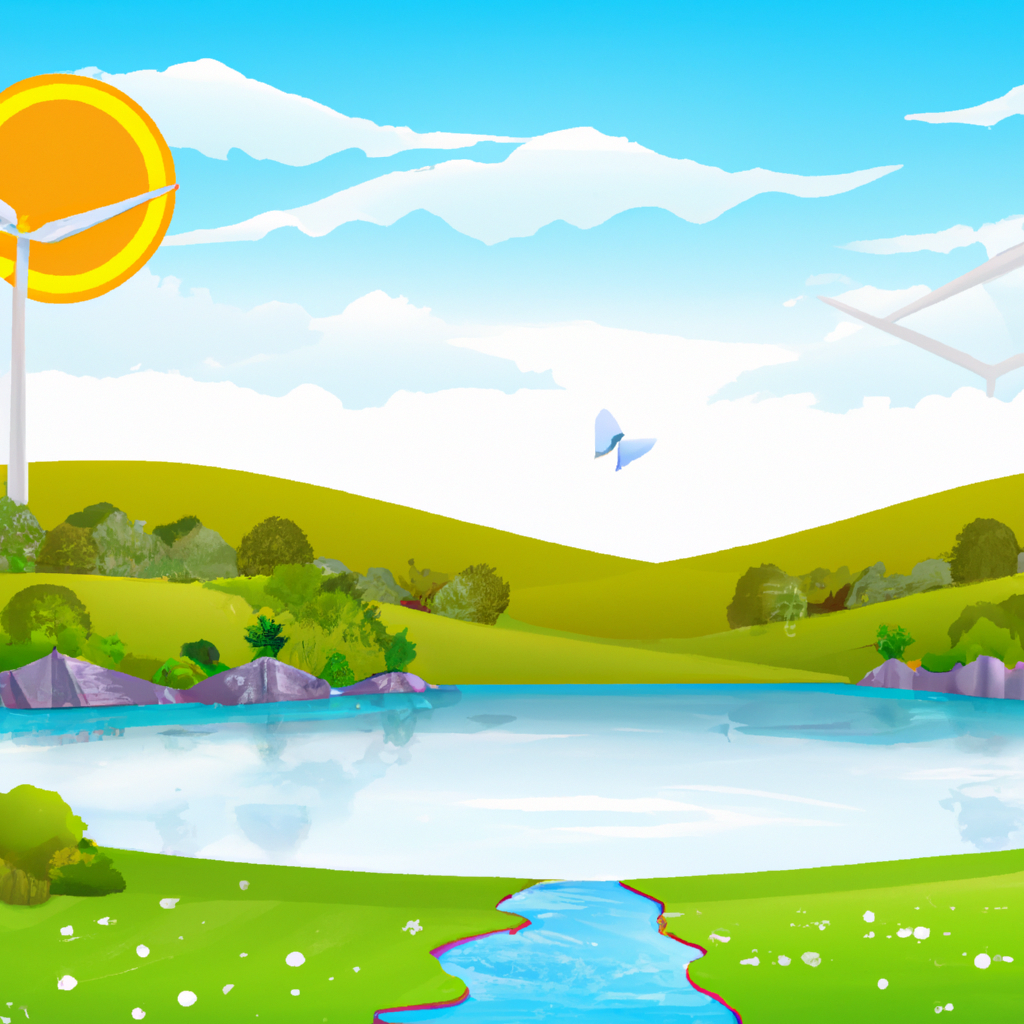In recent years, the issue of climate change has become a major concern for many people. The burning of fossil fuels, such as coal, oil, and gas, is the primary cause of global warming. These fuels release carbon dioxide and other greenhouse gases into the atmosphere, trapping heat and causing the Earth’s temperature to rise. The result is a range of devastating consequences, including more frequent and severe natural disasters, rising sea levels, food and water shortages, and a loss of biodiversity. To combat climate change, we need to reduce our reliance on fossil fuels and shift towards renewable energy sources. In this article, we will explore how renewable energy can help combat climate change and save the planet.

What is Renewable Energy?
Renewable energy is energy that is generated from natural resources that are replenished over time, such as sunlight, wind, water, and geothermal heat. Unlike fossil fuels, these resources are virtually infinite and do not produce harmful greenhouse gases. There are several types of renewable energy sources, including solar power, wind power, hydro power, and geothermal power. The use of renewable energy is a key component of the transition to a low-carbon economy and a sustainable future.
How Renewable Energy Can Help Combat Climate Change
Renewable energy can help combat climate change in several ways. First, it can reduce greenhouse gas emissions by replacing fossil fuels in electricity generation, transportation, and heating and cooling. For example, solar panels can be used to generate electricity for homes and businesses, while wind turbines can produce power for entire communities. Electric vehicles powered by renewable energy can replace gas-powered cars, reducing emissions from the transportation sector. Geothermal heat pumps can replace traditional heating and cooling systems, reducing emissions from buildings.
Renewable energy can also improve energy security and reduce dependence on foreign oil. By generating energy locally, we can reduce the need for imported oil and gas, reducing our vulnerability to price spikes and supply disruptions. This can also create new jobs and economic opportunities in the renewable energy sector, which is growing rapidly around the world.
Finally, renewable energy can help reduce air and water pollution, improving public health and quality of life. Fossil fuels are a major source of air and water pollution, contributing to respiratory illnesses, heart disease, and other health problems. Renewable energy sources are much cleaner and produce little to no pollution.
The Future of Renewable Energy
The future of renewable energy is bright. The cost of renewable energy technologies, such as solar panels and wind turbines, has plummeted in recent years, making them more competitive with fossil fuels. Government incentives and policies, such as tax credits and renewable energy mandates, are also driving the growth of renewable energy. In addition, advances in energy storage technology, such as batteries, are making it possible to store renewable energy for use when the sun isn’t shining or the wind isn’t blowing.
However, there are still challenges to overcome. Renewable energy sources can be intermittent and unpredictable, which can make it difficult to integrate them into the existing energy system. Energy storage technology is improving, but it is still expensive and not widely available. In addition, fossil fuel industries and their political allies continue to resist the transition to renewable energy, fearing the loss of profits and jobs.
Conclusion
In conclusion, renewable energy is a key solution to combat climate change and save the planet. By reducing greenhouse gas emissions, improving energy security, and reducing air and water pollution, renewable energy can help create a cleaner, healthier, and more sustainable world. While there are challenges to overcome, the future of renewable energy looks bright. By investing in renewable energy technologies and policies, we can create a better future for ourselves and future generations.







